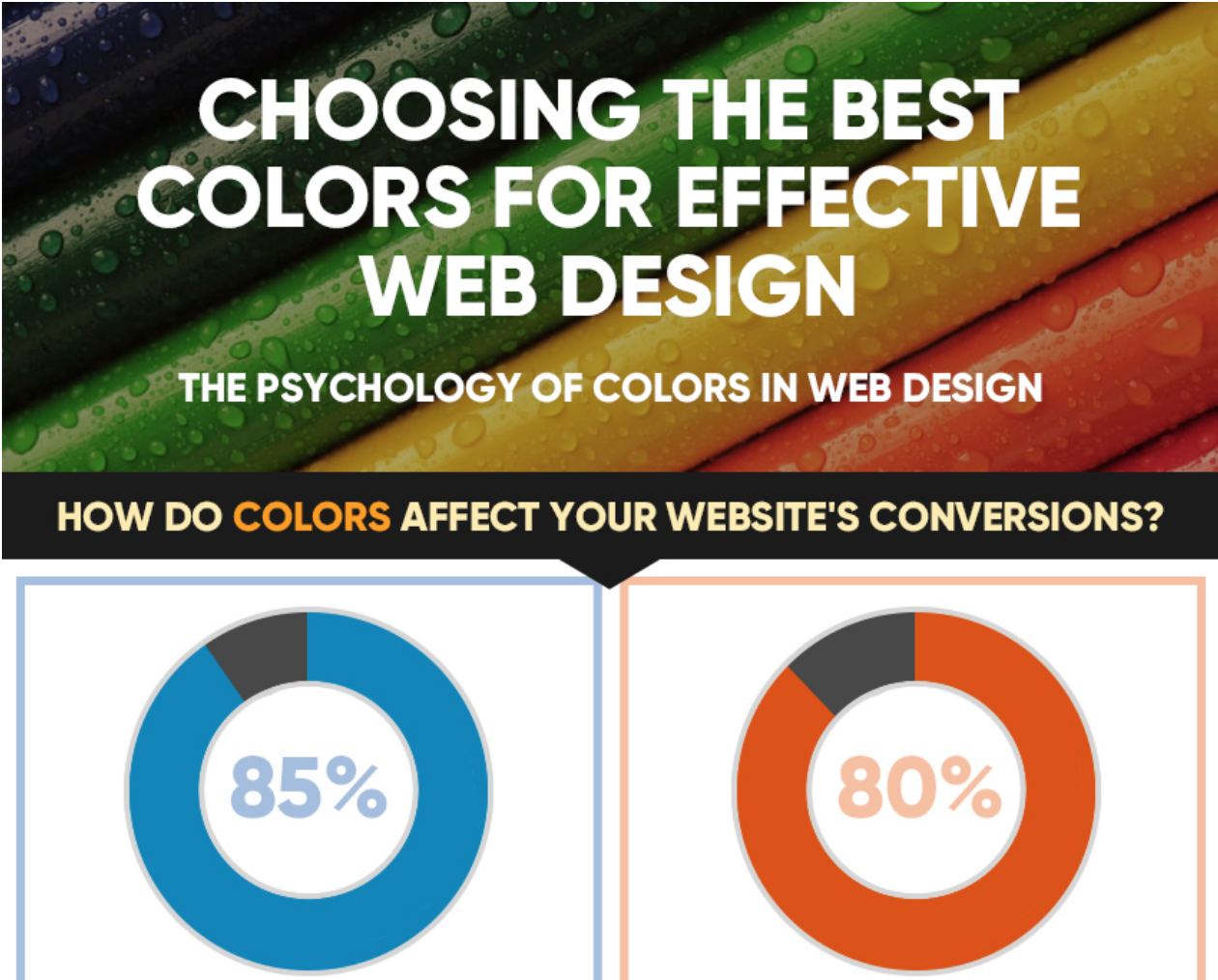Color is a big deal when it comes to web design, but it’s not just about looking good. A seemingly inconsequential variation in shade can have a significant impact on conversion rates. That’s because colors have a proven and measurable impact on our attitudes and emotions.
This little crash course in color psychology can help you better connect with your ideal audience and build trust with visitors.
Is Color Psychology Really a Thing?
Yes indeed. In fact, key findings related to the subject have been published in peer reviewed journals. Read one for yourself while science is still legal. Aside from the documented scientific proof, consider all the marketing pros who have split tested countless pages to find that certain color schemes can produce vastly different results in terms of conversion, even when all the content is exactly the same.
You’re wielding a lot of power over the human psyche with your use of colors. The question you need to ask yourself is whether your experiments in emotional manipulation are working for you, or against you.
Grow Your Legions of Minions and Master Mind Control with These Color Rules
Earn Trust by Using Blue:
Even if you’re a grotesquely rich corporate overlord you can help foster trust by using the color blue in your web design. Mark Zuckerberg and Facebook should be enough to convince you of this, but I guess we can look at some actual evidence too.
- Studies have determined that blue is a universally-liked color.
- It promotes feelings of calm and tranquility, according to this credible source.
- Facebook, LinkedIn, PayPal, Twitter and hundreds of other corporate entities use some shade of blue as their primary color.
You’ll see blue a lot in the financial world, particularly among credit card companies. Maybe they’re hoping it will help calm customers down before they call to dispute that ridiculous $200 finance charge.
Red for Pasion and Urgency:
Red gets the blood pumping. It’s a color that promotes passions, energy and urgency. Red is often used to promote clearance sales or to draw attention to CTAs.
Orange Inspires Impulsive Behaviors:
According to the marketing wizards at Kiss Metrics, orange can inspire activity, a sense of urgency and even impulsive behavior. When Amazon tempts visitors with a limited offer, it’s usually highlighted by a bright orange banner.
Black is For Luxury and Sophistication:
If high-end class and sophistication is what you’re going for, black does the trick. Using black is also said to promote a certain edginess, making it a great choice luxury goods, fashion and cosmetics.
White for Clean Simplicity:
White is believed to promote cleanliness, virtue and simplicity. It makes a great backdrop for the healthcare industry – or for anyone who enjoys a clean, minimalist approach to design.
Gray Promotes Professionalism:
Gray comes across as professional and subdued. When used correctly it helps create a balanced and calm effect. Used by white color professionals as well as luxury brands, but works well across a wide span of industry types.
Purple is Powerful on Many Levels:
Purple is seen as a color of majesty, opulence and luxury. It’s often associated with success and respect. This is a go-to color for beauty products, massage, yoga spirituality and feminine brands.
Green for Positivity and Health:
This color is associated with health, nature peace and relaxation. Some experts believe the color green can actually help alleviate depression. It’s also a great color for conversions, as it is said to promote decisiveness.
Yellow Keeps it Warm and Cheerful:
Yellow is a great color when it comes to generating a sense of optimism among your visitors. It’s also a great attention grabber. One rule to keep in mind when implementing yellow is to use it sparingly, as this color can easily become overwhelming.
This Infographic Will Show You How to Use Colors Together and Increase Your Conversions
Are you ready to start using colors to generate more results? Take a look at this infographic to learn more about how to use certain color schemes to drive more participation and action with your web design.







Leave a Reply